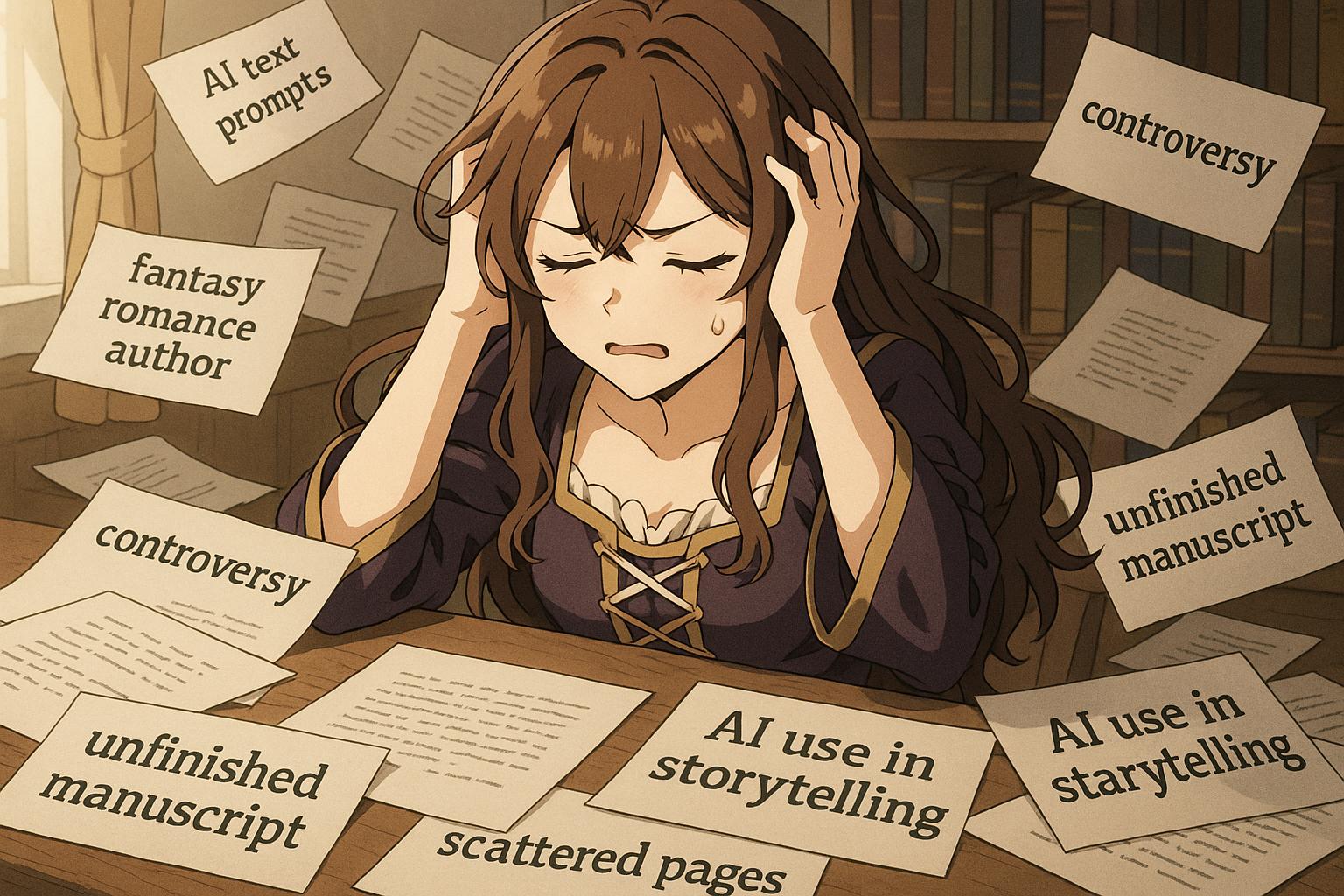In late May 2025, authors K.C. Crowne, Rania Faris, and Lena McDonald found themselves embroiled in a controversy that sparked intense debate within the literary community. Readers uncovered what appeared to be AI-generated prompts in their recently published fantasy romance novels. With the presence of unfinished notes and editorial cues embedded within the text, the incident raised questions about authenticity and the author's creative process, setting off a backlash that reverberated across platforms such as Reddit, Goodreads, and Bluesky.
What made this particular case alarming was not merely the use of AI tools, which have become commonplace in various writing contexts, but the startling revelation that unedited prompts had been included in final copies of the authors' works. This was particularly glaring in McDonald's Darkhollow Academy, where a specific passage referred to revising a scene to mimic another author's style. Readers noted that the text seemed more akin to a rough draft note than a polished narrative. One user remarked, "It's like she copied and pasted directly from her AI draft and forgot to clean it up." Such discoveries sparked significant concern regarding the integrity of the work.
Reactions from the reading community were divided. Many perceived the use of AI as a practical adaptation to the demands of contemporary publishing, where rapid production cycles pressurise authors to deliver content at an alarming rate. Conversely, a substantial segment of readers felt deceived. A comment on Goodreads encapsulated this sentiment: "It's not just about AI. It's about trust. When you buy a book, you expect the voice behind it to be human, not a chatbot." This backlash was exacerbated by the speed at which the authors were producing works; one critic pointed out that one of the authors had released three full-length novels in under three months, drawing comparisons to industry legend Stephen King's renowned output.
This controversy encapsulates an ethical dilemma that has gained traction in the literary world, particularly as AI technologies evolve. The question remains whether authors should disclose their use of AI in the creative process. As many experts suggest, transparency is vital not just for maintaining reader trust, but also for preserving the essence of storytelling. Vania Margene Rheault, addressing the issue, noted that while AI can serve as a tool for brainstorming and minor edits, its misuse could lead to significant oversights, as seen in this incident.
The legal landscape surrounding AI in creative industries further complicates this matter. While publishing works created with AI assistance is permissible in both the US and the UK, significant differences exist in copyright law. In the US, only content with human authorship is protected, leaving fully AI-generated material without legal backing. Conversely, UK law allows for computer-generated works to qualify for copyright, attributing authorship to the individual guiding the AI process. Despite these legal frameworks, the publishing industry is increasingly insisting on the need for stricter regulations and clearer standards surrounding AI usage to maintain reader confidence.
Indeed, the ongoing conversation about AI's role in creativity invites scrutiny not only concerning the methods by which works are produced but also about the implications for artistic integrity. As Dr. Anas Al-Ghamdi emphasized at a symposium in 2024, AI cannot replicate the emotional complexity intrinsic to human storytelling. While AI may enhance certain operational aspects, it must primarily serve as a companion to human creativity rather than a replacement.
As more authors like Crowne, Faris, and McDonald navigate the blurred lines between inspiration and authorship in the realm of AI-assisted writing, one thing remains clear: readers are not merely looking for perfection; they seek honesty. This episode has catalysed a broader discussion about the balance between embracing innovative tools and upholding the trust that inherently binds storytellers to their audiences. The path forward calls for a measured approach that acknowledges the potential for AI as a collaborative tool, while also safeguarding the authenticity that readers cherish.
📌 Reference Map:
- Paragraph 1 – [1], [4]
- Paragraph 2 – [1], [3]
- Paragraph 3 – [2], [5], [6]
- Paragraph 4 – [7]
- Paragraph 5 – [1], [2], [4]
Source: Noah Wire Services
